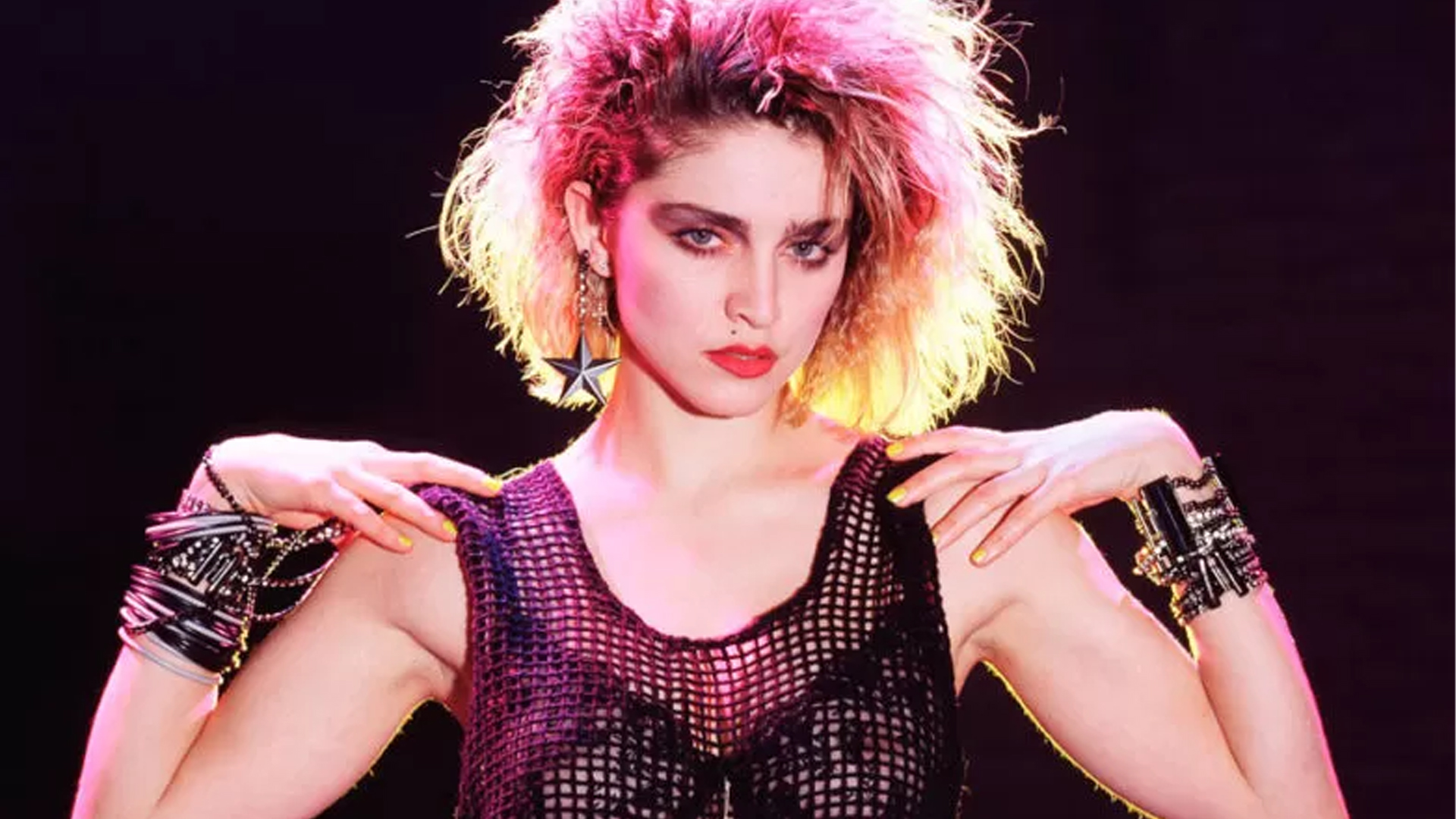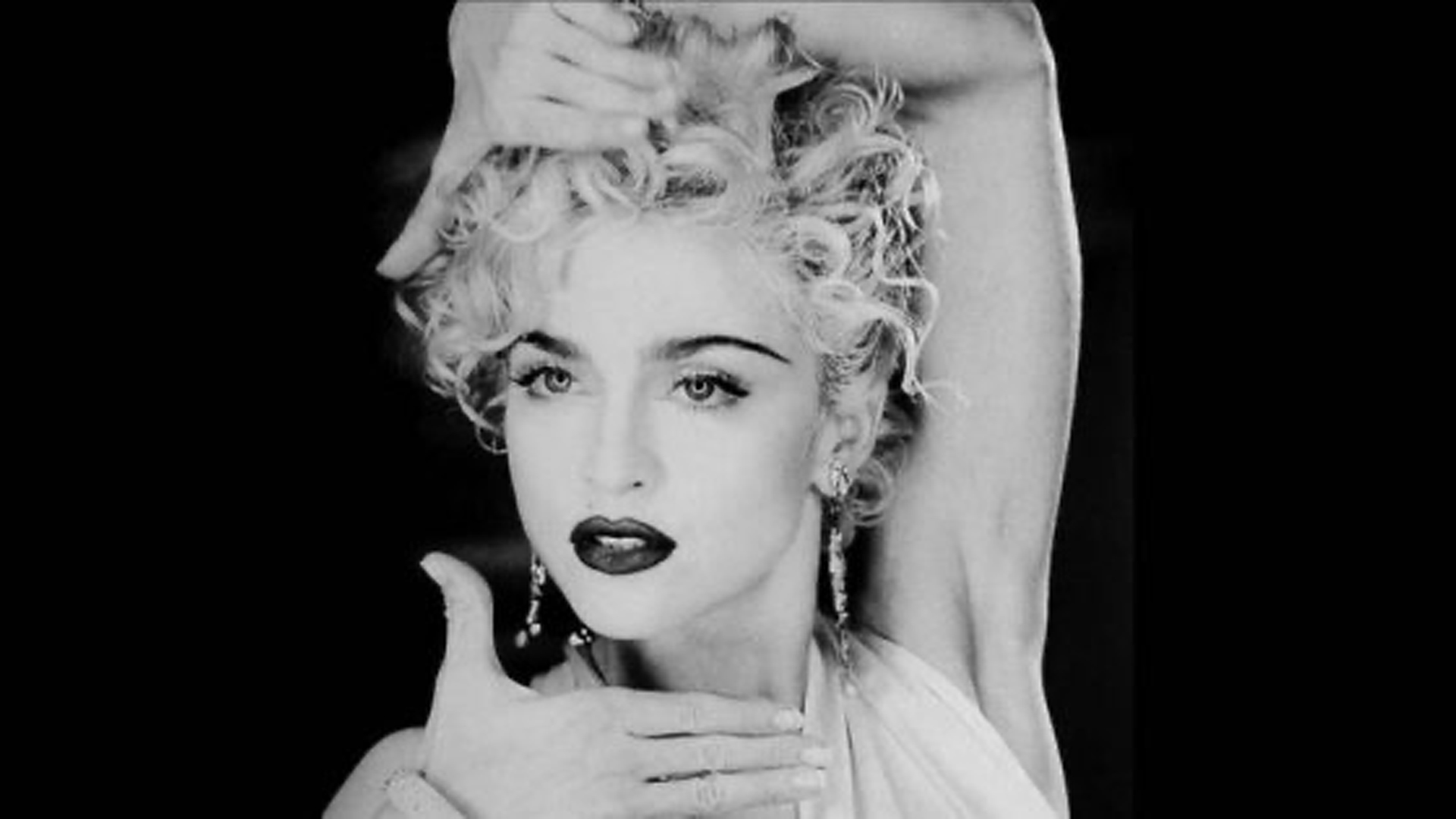Hailed around the globe as The Queen of Pop, Madonna’s impact on the genre has been so profound that, in the decades since she released her debut single in 1982, the entire genre has been transformed in her image (and has constantly strived to keep up with her).
Transformation is inherent to Madonna’s story and legacy. Born Madonna Louise Ciccone to Italian American and French Canadian parents, she grew up in the suburbs of Detroit, spending her school years playing piano, taking ballet lessons, and earning straight As. Seemingly born with an inclination to surprise and provoke, Madonna’s non-conforming ways were present from the very start— and so was her desire to be somebody.
Her first reinvention came in 1978, when she dropped out of college to move to New York City. There in the East Village, she dedicated herself to dance. Over the next four years, Madonna would cut her teeth performing as a dancer and backup singer around the world and forming her own rock bands. By the dawn of the 1980s, Madonna was done with the bands— she was ready to become Madonna the solo artist, and started with her first single, “Everybody,” and following its success began working on her debut album, Madonna.

Today, it is near impossible to imagine a pop landscape without Madonna at its epicenter. The tracks from her debut like “Borderline,” “Lucky Star,” and “Holiday,” have since become so embedded in our collective pop consciousness that it is easy to forget that their sound was once completely novel. Madonna’s synth-disco sound was made possible by brand-new technology in music, and paired with her distinct, girlish voice, the album sounded like nothing else before it. With each of her further 80s releases (Like a Virgin, True Blue, Like a Prayer) Madonna continued to push her sound forward.
Of course, it wasn’t just pop music that Madonna was changing. With her unique way of dressing, and provocative ways as a performer, Madonna represented a new kind of woman. While this was polarizing for some, and many religious people and groups took offense to her utilization of Catholic imagery in her work, women and girls everywhere were zealous in their efforts to be more like Madonna. With each release and each performance, Madonna expanded the scope of female self-expression. In the process, she permanently overhauled American culture.
Like all renegade artists, Madonna’s vision and creative output outpaced society’s ability to receive it. While she had been the queen of the chars in the 80s, the 90s saw more pushback than celebration. Her album, Erotica, was her lowest-selling yet, as it was overshadowed by her controversial coffee-table book Sex, which featured explicit photos. Her live performances and appearances in films and TV were marked by a series of provocative stunts that caused outrage and discomfort from the public. For a moment in time, it seemed like Madonna was at the end of her rope.

But not for long. Her relentless capacity for reinvention won out yet again. In 1998, she released Ray of Light, an experimental record that blended Eastern mysticism, electronica, and elements of British rock. It was both completely unlike anything she had released before, but also quintessentially Madonna. Hailed by critics far and wide, the album won four Grammy Awards. Madonna was once again back on top: in 2001, she solidified this by embarking on her first tour in eight years only to be met with fervent anticipation. It was the highest-grossing tour that year.
Since the dawn of the millennium, Madonna has released seven more albums and has had twenty-six singles go to number one on the Billboard Dance Club Songs charts. That today’s pop landscape is dominated by unapologetic women like Miley Cyrus, Beyonce, Rhianna, and Lady Gaga who take sonic risks and embrace female sexuality is an homage to the ground that Madonna broke. It is no understatement to say that each time pop music evolves through the push and pull of provocation, Madonna’s essence is being channeled.
While American music and culture have changed rapidly and drastically since 1982, one thing has remained the same: we are still full of anticipation as we wait to see what Madonna is going to do next.
Natalli Marie Amato
Natalli Amato is a music and lifestyle journalist from Sackets Harbor, New York. Her bylines include Rolling Stone, Vice, and The Boot. She is also the author of several collections of poetry.


